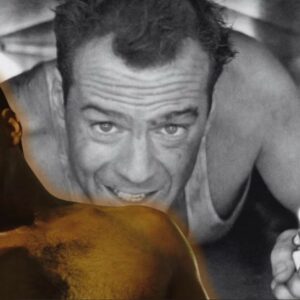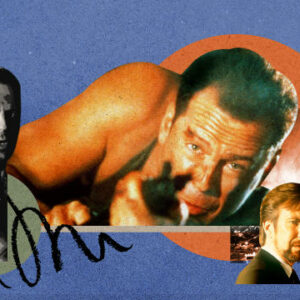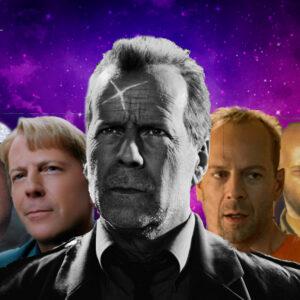Cillian Murphy is widely regarded as one of the most versatile and captivating actors of his generation. Known for his ability to inhabit complex characters, Murphy’s career trajectory is a testament to his commitment to diverse, intellectually stimulating roles that push the boundaries of storytelling. From his early days on the stage in Ireland to his rise as a Hollywood leading man, Murphy has carved a unique path in the entertainment industry. His filmography, ranging from psychological thrillers to war epics, has demonstrated an ability to blend emotional depth with intellectual curiosity, a rare combination that has made him a favorite of both audiences and critics alike.
This article will explore Cillian Murphy’s approach to script selection, examining how his choices have shaped his career and contributed to his reputation as a thoughtful and daring actor. We will analyze his penchant for roles with emotional complexity, his collaboration with visionary directors, his attraction to genre-defying scripts, and his unique ability to convey power through minimal dialogue. Ultimately, this article aims to highlight how Murphy’s careful script selection has elevated his career and cemented his status as one of cinema’s most thought-provoking actors.
Role of Complex, Multifaceted Characters
One of the defining features of Cillian Murphy’s career is his tendency to choose roles that explore emotional depth, psychological complexity, and moral ambiguity. These multifaceted characters often exist in morally grey areas, allowing Murphy to showcase his range as an actor. His portrayals of complex characters not only allow him to deliver gripping performances but also highlight his ability to bring nuance to roles that are often misunderstood or conflicted.
Take, for example, his portrayal of Tommy Shelby in Peaky Blinders. As the cunning and ambitious leader of a notorious Birmingham gang, Shelby is a character whose vulnerability often contrasts with his ruthless determination. Murphy expertly navigates this duality, imbuing Shelby with emotional depth that makes him more than just a gangster archetype. Similarly, Murphy’s portrayal of Dr. Jonathan Crane (aka Scarecrow) in The Dark Knight Trilogy is another example of his ability to play morally ambiguous characters. In Christopher Nolan’s trilogy, Scarecrow is a man driven by a warped sense of justice and a psychological need for power. Though his screen time is minimal compared to some of the other villains, Murphy’s performance elevates Scarecrow beyond a simple antagonist.
Perhaps one of Murphy’s most compelling roles is that of the soldier in Christopher Nolan’s Dunkirk, a war epic that strips away much of the traditional character development in favor of intense, visceral action. Here, Murphy plays a young soldier suffering from shell shock, his face a portrait of fear and vulnerability in the midst of war. The character is emotionally complex, not in the sense of psychological depth, but in the profound effect war has on the human psyche. It is a role that relies heavily on Murphy’s physicality and his ability to convey emotion through his eyes and subtle gestures, proving that his skill in playing complex characters transcends dialogue.
A Preference for Collaborating with Visionary Directors
Another key factor in Murphy’s approach to script selection is his preference for working with visionary directors who challenge him creatively and push the boundaries of his acting abilities. From the very beginning of his career, Murphy has aligned himself with directors known for their distinctive storytelling and their ability to think outside the box. Collaborations with filmmakers like Christopher Nolan, Danny Boyle, and Michael Spierig have not only elevated his career but also allowed him to grow as an actor by exploring challenging and unconventional scripts.
Murphy’s relationship with Christopher Nolan is perhaps the most notable example of a fruitful collaboration. Nolan, known for his mind-bending narratives and intricate world-building, has cast Murphy in a number of high-profile roles. In Inception, Murphy plays Robert Fischer, a man whose mind is being invaded by a team of dream thieves. Fischer’s emotional journey — from the pain of losing his father to his eventual resolution of his father’s legacy — allows Murphy to portray a character whose internal conflict is as important as the action unfolding around him. Similarly, in The Dark Knight Trilogy, Murphy’s role as Scarecrow is pivotal in maintaining the psychological tension of Nolan’s Batman universe. Through their collaborations, Murphy has proven himself to be a perfect fit for Nolan’s cerebral, emotionally intense narratives.
Danny Boyle is another director with whom Murphy has formed a longstanding creative partnership. In Boyle’s 2002 zombie horror film 28 Days Later, Murphy plays Jim, a man who awakens from a coma to find Britain devastated by a viral outbreak. Jim’s transformation from confused bystander to reluctant hero is a journey of survival, and Murphy brings an everyman quality to the role that makes Jim’s struggle resonate with audiences. Boyle’s direction, which combines horror with social commentary, offers Murphy the opportunity to play a character who evolves under extreme pressure. This collaboration was a significant moment in Murphy’s career, showcasing his ability to anchor a film while navigating the intense, psychological chaos created by Boyle’s script.
Working with visionary directors like Nolan and Boyle has allowed Murphy to be part of films that challenge not only his acting abilities but also the very conventions of the genres they represent. These collaborations have shaped his career trajectory, positioning him as a leading actor capable of taking on both mainstream and avant-garde roles.
A Strong Attraction to Thought-Provoking, Genre-Bending Scripts
Another defining aspect of Murphy’s script selection is his attraction to roles in films that challenge conventional storytelling, particularly those that blend genres and explore deep philosophical or existential themes. Murphy has gravitated toward roles in sci-fi, psychological thrillers, and war epics, genres that often allow him to explore the complexities of human nature, identity, and survival.
In Inception, a mind-bending heist film set in the world of dreams, Murphy’s character grapples with the legacy of his father and his own psychological trauma. The film’s genre-blending narrative — mixing heist thriller with science fiction and psychological drama — gave Murphy the opportunity to showcase his ability to navigate multiple layers of emotion while maintaining the suspense of the plot. Similarly, in Transcendence, Murphy plays a scientist caught up in the ethical and existential dilemma of artificial intelligence. The film explores deep questions about technology’s impact on humanity, and Murphy’s portrayal of a character caught between his intellectual curiosity and moral concerns adds depth to the story’s philosophical themes.
War epics also play a significant role in Murphy’s career, and Dunkirk is perhaps his most notable venture into this genre. Nolan’s film is not only a historical war drama but also a meditation on heroism, survival, and the psychological toll of war. Murphy’s character is deeply affected by his trauma, and his performance conveys the fragility of the human spirit in the face of overwhelming danger. This blending of genre and intellectual exploration in Murphy’s roles has allowed him to delve into themes that are both timely and thought-provoking.
Minimalist, Yet Powerful Dialogue
In many of his roles, Murphy’s scripts feature minimalist, yet powerful dialogue. Rather than relying on long speeches or excessive exposition, his characters often express themselves through subtle gestures, body language, and facial expressions. This reliance on non-verbal communication allows Murphy to display his immense range as an actor, conveying complex emotions without the need for verbal elaboration.
In Dunkirk, where much of the story is told through action rather than dialogue, Murphy’s performance hinges on his ability to convey emotion through his eyes and physicality. Similarly, in The Dark Knight Trilogy, Murphy’s Scarecrow rarely speaks at length, yet his presence is intensely felt. The character’s psychological instability and moral ambiguity are communicated through his facial expressions and body language, making his scenes some of the most chilling in the trilogy. In Inception, Murphy’s character Fischer has little dialogue, but his emotional journey — from bitterness and grief to reconciliation — is conveyed with subtlety, demonstrating Murphy’s ability to anchor a performance without the need for lengthy dialogue.
Murphy’s ability to create deep emotional resonance without relying on words sets him apart from many of his contemporaries and showcases his mastery of the craft. His performances in films like Inception and Dunkirk prove that the strength of his acting lies in his ability to make every glance, every movement, and every silence speak volumes.
A Passion for Roles That Resonate on a Personal Level
Finally, Murphy’s script selection often reflects his personal interests, values, and philosophical views. Many of the roles he chooses deal with themes of trauma, survival, societal issues, and the complexities of human nature. His involvement in projects that reflect his Irish heritage, such as The Wind That Shakes the Barley, is a prime example of how his personal connection to a script influences his career choices.
The Wind That Shakes the Barley, set during the Irish War of Independence, follows two brothers caught between loyalty to their country and the personal sacrifices they must make for the greater good. Murphy’s role as one of the brothers allows him to explore the personal cost of political conflict, a theme that resonates deeply with his own Irish background. The film’s focus on the complexities of identity, resistance, and survival mirrors Murphy’s own artistic sensibilities, and his portrayal of a man torn between duty and conscience is both powerful and deeply personal.
Conclusion
Cillian Murphy’s career is a testament to the power of thoughtful script selection. From his early work in 28 Days Later to his more recent roles in Dunkirk and Inception, Murphy has consistently chosen roles that challenge him intellectually and emotionally, pushing the boundaries of both genre and performance. His attraction to complex characters, visionary directors, and thought-provoking scripts has shaped his career, making him one of the most respected and versatile actors of his generation.
By choosing roles that resonate on a personal level and that engage with deep philosophical and existential themes, Murphy has built a filmography that is as intellectually stimulating as it is emotionally compelling. As his career continues to evolve, it is likely that he will continue to make choices that challenge both himself and his audience, further solidifying his status as a true artist in the world of cinema.





